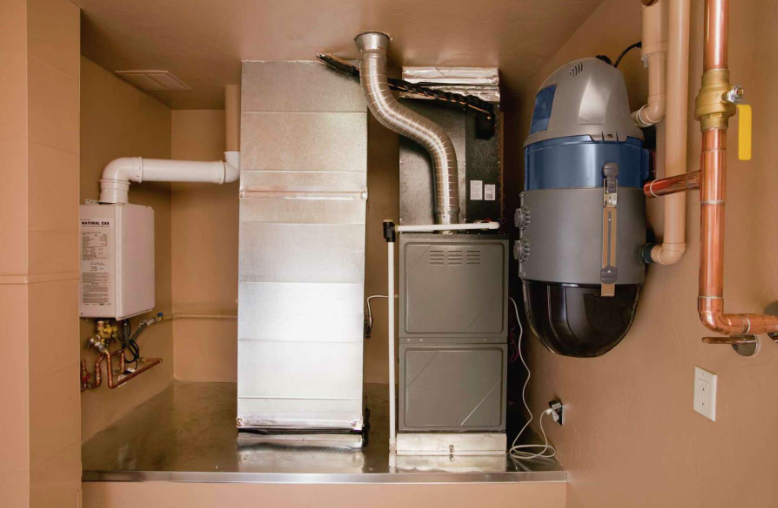Choosing the right furnace for your home involves more than just picking a model—it’s about matching your heating system to the local climate. For example, homeowners researching Furnace Installation in Kansas City, KS should consider the area’s temperature swings, humidity, and seasonal conditions when selecting a furnace. This decision can affect not only comfort but also energy efficiency and long-term cost savings.
In this guide, we’ll explain how different climates impact furnace selection, what features to look for depending on where you live, and why climate-specific choices can optimize your home’s heating performance.
Understanding the Role of Climate in Furnace Selection
The performance and efficiency of a furnace depend heavily on the environment in which it operates. Climates vary significantly—from the dry heat of desert regions to the bitter cold of northern states. These differences dictate how powerful your furnace needs to be, what fuel source is best, and what type of furnace technology is most efficient.
Kansas City, for instance, experiences hot, humid summers and cold, snowy winters. This makes it a region that requires a balanced, high-efficiency heating system that can handle rapid temperature changes without skyrocketing utility bills.
Climate Categories and Furnace Types
1. Cold Climates (e.g., Northern States)
In areas with long, harsh winters, a high-capacity furnace is essential. Homeowners in these regions benefit most from:
- High AFUE (Annual Fuel Utilization Efficiency) Furnaces – Look for 90%+ AFUE to ensure minimal energy waste.
- Two-Stage or Modulating Furnaces – These models adjust output based on heating demand, reducing temperature swings and improving efficiency.
- Natural Gas or Oil Furnaces – These fuels provide powerful, consistent heating.
2. Moderate Climates (e.g., Kansas City, KS)
In moderate climates that experience all four seasons, a furnace must be adaptable. For these areas:
- Gas Furnaces with Variable-Speed Blowers offer good efficiency while maintaining even temperatures.
- Electric Furnaces may be suitable if natural gas is not available, although they tend to cost more to run.
- Dual Fuel Systems that combine a gas furnace with a heat pump can provide efficient heating across a wide temperature range.
3. Warm Climates (e.g., Southern States)
In regions where winters are mild and short, the demand for a powerful furnace is lower. Here, the best options often include:
- Heat Pumps – Efficient in moderate to warm temperatures and double as cooling units in the summer.
- Low-Capacity Gas Furnaces – These meet minimal heating needs without overproducing heat.
How Humidity and Insulation Affect Furnace Needs
Humidity Considerations
Humidity can affect how warm your home feels. In places like Kansas City where winter air tends to be dry, a furnace equipped with a built-in humidifier can improve comfort and prevent dry skin, static electricity, and furniture damage. Conversely, in damp climates, excess humidity might require additional dehumidification.
Home Insulation
Well-insulated homes in any climate require smaller, more efficient furnaces. Insulation helps trap heat inside, which reduces the workload on your furnace. Before installing a furnace, always assess your insulation levels—upgrading insulation can lead to needing a smaller, less expensive unit.
Fuel Availability and Cost by Region
The type of fuel your furnace uses will significantly impact your long-term heating costs, and availability varies by region.
- Natural Gas is the most popular heating fuel in colder and moderate climates due to its affordability and reliability.
- Electricity is a common choice in areas where gas is limited but can result in higher operational costs.
- Oil or Propane may be options in rural regions where natural gas infrastructure isn’t available.
When considering Furnace Installation in Kansas City, KS, natural gas is typically the most cost-effective and readily available fuel source.
Energy Efficiency Ratings: What to Know
Understanding furnace efficiency ratings is key to choosing a climate-appropriate unit. The main metric to look at is AFUE:
- 80% AFUE: For mild climates where heating demands are low.
- 90–98% AFUE: Ideal for colder or moderate climates where the furnace runs for long periods.
Higher-efficiency units cost more upfront but save money over time through lower energy bills. In Kansas City’s variable climate, a mid- to high-efficiency furnace (90–95% AFUE) is generally the best choice.
Smart Technology and Climate Control
Modern furnaces often come with smart thermostats and zoning capabilities, which allow homeowners to fine-tune temperatures in different parts of the house. This is especially useful in areas where temperatures fluctuate widely from day to night.
Smart climate controls can:
- Adapt automatically to weather changes
- Optimize furnace performance based on usage patterns
- Help reduce energy waste during milder weather
Why Professional Consultation Matters
Choosing the right furnace isn’t just about picking a unit off the shelf. A local HVAC professional can help:
- Perform load calculations to determine the ideal furnace size
- Recommend features suited to your home’s layout and climate
- Ensure proper installation to avoid issues like uneven heating or poor efficiency
This is why working with experts in Furnace Installation in Kansas City, KS is crucial. They understand the regional climate and can help you select a furnace that meets both comfort and energy-efficiency needs.
Conclusion
Climate has a major impact on the type of furnace you should install. From fuel types to efficiency ratings and special features like humidifiers or variable-speed motors, every decision should be informed by your local environment.
For residents of areas with mixed seasonal weather—such as Kansas City—selecting a furnace that handles both moderate and extreme cold effectively is key. By understanding your region’s climate needs and working with trusted professionals, you can ensure long-term comfort, energy efficiency, and lower heating costs.
